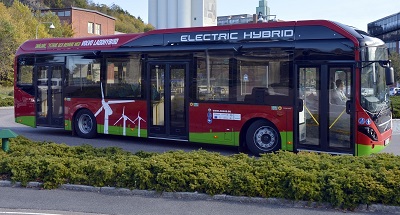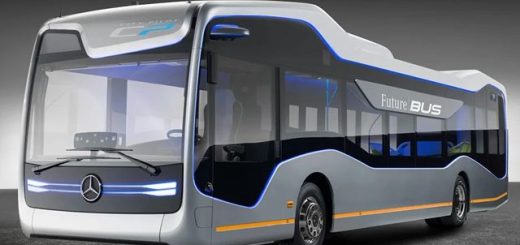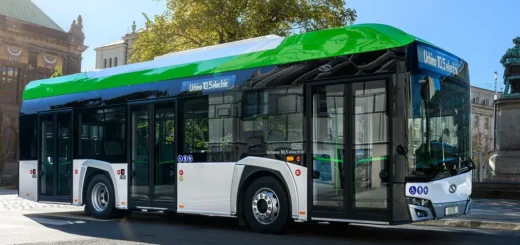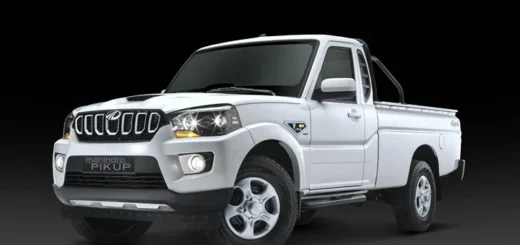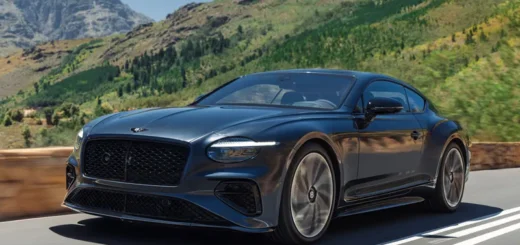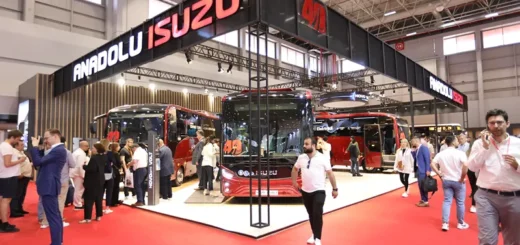Volvo 7900 Electric Hybrid City Bus: Fast Charging, HVO Fuel
Volvo’s `OppCharge´ system allows batteries to be charged in 3 to 6 minutes.
Swedish bus maker Volvo is marching ahead with its parallel hybrid systems in the urban bus segment, with improved energy efficiency and reduced carbon footprint. The company´s 7900 Electric Hybrid is witnessing acceptance worldwide, with more than 3,600 electrified buses sold so far. Europe, in particular, is the largest market, with the bus maker receiving orders from Belgium, Luxemburg, Germany and Sweden. Partnering with ABB and RTM, the public transport provider of Marseille, France, Volvo has commenced a four-week trial of the electric-hybrid city bus and its latest defining features – opportunity fast-charging concept and renewable HVO (Hydrogenated Vegetable Oil) fuel.
Also Read: Volvo 7900 Electric Hybrid: New Zone Management System
Cutting short the story, the latest technological additions in the 7900 Electric Hybrid significantly reduces the charging duration with these buses and the CO2 emissions out of fuel used in the hybrid system. The bus can operate in electric mode quietly and emission-free for about 8 kms in average speeds with the IC engine shut-off. If driver demands more power or the battery power dries out, the engine can smoothly re-engage.
Since the intra-city routes offer frequent waiting time at end points, Volvo is banking on fast charging infrastructure to replenish the battery pack. This can help the bus run emission-free for a major part of its trips. In France, its partner ABB has installed fast charging points based on the open interface `OppCharge´ that takes just 3-6 mins to charge the batteries. The charging stations have pole-mounted pantograph that allows high-power charging through physical conduction. Its open interface means interoperability between all charging station and electric buses.
The next highlight is the use of HVO as alternative fuel for the IC engine. It is a stable and sustainable paraffinic fuel that is synthesized from vegitable or animal sources. Its higher cetane number (ignitability) results in substantial reduction of particulate emission. It assures drastic reduction in fossil CO2 emission as well. Volvo has made its `D5´ 5-litre diesel engine (Euro 6 compliant) in the 7900 Hybrid compatible to the HVO.
Also Read: Volvo 8400 Hybrid Low-Floor City Bus (Indian Spec)
The Volvo 7900 Electric Hybrid is in production since 2009. The city bus is well-known for its car body structure and the roof made of aluminium that is 90 percent recyclable. This also aids in weight-reduction and fuel consumption. Further, the Volvo offers the intelligent zone management system in hybrid bus that identifies ‘zero-emissions’ or ‘silent’ zones on its own using GPS and turns off the engine to run purely on electric.
Next, would you like to read more on Hybrid Vehicles, or City Buses in general?

